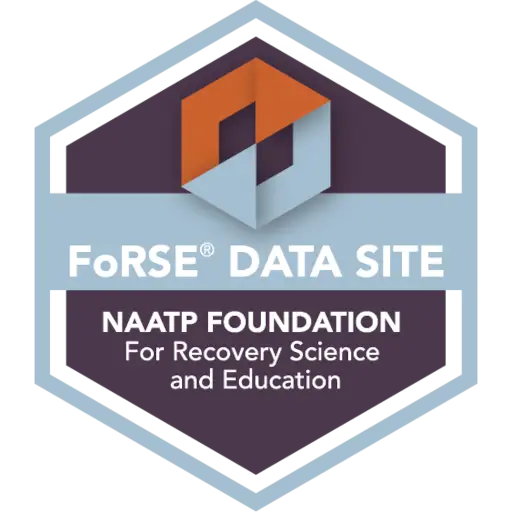One of the most commonly prescribed central nervous system medications is benzodiazepines. Benzodiazepines find themselves on many prescription pads for their therapeutic effectiveness and broad applications.
However, despite their therapeutic benefits, benzodiazepines have some of the highest potential for toxicity and abuse. After long-term benzodiazepine use, people can develop psychological and physical dependence that progresses quickly to addiction.
For this reason, benzodiazepines are not over-the-counter medicines. They are highly controlled substances that can only be prescribed by doctor. Benzodiazepine acquired from illegal sources are illicit drugs.
Learn more about benzodiazepines, how they work, and the use of benzodiazepines. Also, read on to learn why it is challenging for many people to stop using benzodiazepines and how to identify the early signs of benzodiazepine abuse.
What Are Benzodiazepines?
Benzodiazepines are a group of sedative-hypnotics used for various central nervous system conditions. They are commonly prescribed to treat anxiety disorders, but also for sedation, muscle relaxation, and the management of alcohol withdrawal symptoms.
Benzodiazepines are CNS depressants; they have a calming effect on users. The calming effect, coupled with speedy results of these drug agents, make benzodiazepines drugs highly addictive.
How Do Benzodiazepines Work?
Benzodiazepines work by acting on certain neurotransmitters that depress central nervous system action. To be specific, Benzodiazepines promote the secretion of a neurotransmitter called gamma-aminobutyric acid, or GABA.
GABA is the neurotransmitter responsible for opening chloride channels and reducing the polarity of nerve membranes. With depolarization comes reduced neural excitability, which, in turn, prevents nerve cells from receiving pulses across synapses.
In short, benzodiazepines increase the secretion of gamma-aminobutyric acid, which reduces nervous excitability. This low excitability gives most people taking benzodiazepines a sedating effect.
What Are the Different Types of Benzodiazepines?
Many types of benzodiazepines are available on the market. There are many ways to classify them, but the simplest would be to classify them based on their half-life.
There are three benzodiazepine classifications based on their half-life and therapeutic onsets: short-acting, intermediate-acting, and long-acting.
Short-Acting Benzodiazepines
Short-acting benzodiazepines have a half-life of about one to 12 hours. Patients on these benzodiazepines may need to take them more often, since these are eliminated more quickly by the body.
Despite their short bioavailability, short-acting benzodiazepines carry the highest risk for withdrawal symptoms and are the most addictive of the three types of benzodiazepines.
Some examples of short-acting benzodiazepines are triazolam and midazolam. Triazolam is a frequently prescribed drug for managing mild anxiety and insomnia. Midazolam has a similar effect to triazolam and is useful for making people drowsy before a surgical procedure.
Intermediate-Acting Compounds
On average, intermediate-acting benzodiazepines have a half-life of 10 – 60 hours. Because they stay in the system longer, patients on intermediate-acting benzodiazepine agents require frequent liver function tests.
There are several types of intermediate-acting benzodiazepines on the market; one of the most commonly prescribed for patients with an anxiety disorder or panic disorder is alprazolam. Other drugs that fall under the class of intermediate-acting include:
- Lorazepam
- Oxazepam
- Temazepam
- Alprazolam
Temazepam is a popular choice for physicians treating insomnia. Lorazepam has proven effective in managing patients experiencing alcohol withdrawal and is also one of the safest choices for patients with damaged livers.
Long-Acting Benzodiazepines
Long-acting compounds like Valium (diazepam) have the longest half-life of any benzodiazepine class, staying in the system for as long as 24 hours. These benzodiazepine drugs undergo slow breakdown and their metabolites stay in the bloodstream for a long time. The result of this slow metabolism is what most patients refer to as the benzodiazepine “hangover.”
This type has one upside: they carry the least risks for withdrawal symptoms. As a result of the metabolites remaining in the bloodstream and system for a longer period, the body learns to adapt, even if a person does not take them often.
Nevertheless, there are withdrawal effects from stopping benzodiazepines, even for short periods. These drugs require careful tapering to prevent benzodiazepine withdrawal symptoms.
Some examples of long-acting benzodiazepine drugs in the benzo family are:
- chlordiazepoxide
- diazepam
- nitrazepam
- clonazepam
- flurazepam
- clorazepate
Of these benzodiazepines, diazepam is the most popular, especially for use in patients with anxiety disorders.
Clonazepam, also known as Klonopin
Chlordiazepoxide is famous for paving the way for many benzodiazepine drugs. It was the result of an accidental discovery in the late 1950s and successfully appeared on the market soon after.
Clonazepam, also known as Klonopin, is one of the most common benzodiazepines for seizures. It is effective as a muscle relaxant. It outperforms many other benzodiazepines with its ability to increase the patient’s seizure threshold.
For What Are Benzodiazepines Used?
Benzodiazepines differ in their classifications and molecular structure. Their capacity to produce a calming and sedative effect makes them commonly used for very similar types of disorders.
Below are some of the most common conditions for which benzodiazepines are used.
Anxiety Disorders
Benzodiazepines are the go-to drugs for managing anxiety disorders. Nearly all physicians prescribe benzodiazepines for anxiety-related disorders, like post-traumatic stress disorder (PTSD) and panic disorder.
Other anxiety disorders that warrant the use of benzodiazepines are:
- Generalized anxiety disorder (GAD)
- Social phobia
- Obsessive-compulsive disorder (OCD)
Substance Use Disorders
Benzodiazepines are commonly administered in medical drug rehab programs during the detoxification process. The tranquilizing effects allow people in addiction treatment to manage insomnia and restlessness that accompany withdrawal symptoms.
Because of the chance of abuse, physicians carefully dose benzodiazepines and treatment facilities monitor patients for signs of benzodiazepine dependence and abuse along with that of other substances.
Panic Attacks
Due to their tranquilizing effects, benzodiazepines are also useful for managing panic attacks. While most benzodiazepines work for managing a panic episode, the ones favored the most are rapid-onset benzodiazepines, like diazepam and clorazepate.
Preoperative Sedation
There are situations when preoperative anxiety gets in the way of a successful surgical procedure. In such situations, a physician may prescribe short-acting or intermediate-acting benzodiazepines to aid with preoperative sedation, though most would opt for short-acting.
Seizure Disorders
Benzodiazepines like clonazepam and clorazepate can increase the seizure threshold, the least amount of stimuli that can trigger a seizure. The higher the threshold, the more stimuli are required to produce a seizure in a patient, thus making seizures happen less frequently.
Benzodiazepines – epilepsy treatment, by increasing the seizure threshold, these drugs can address epileptic episodes. Given regularly, they can also prevent seizures from occurring.
Clorazepate is the benzodiazepine drug of choice for seizures for two reasons:
- It is effective at increasing seizure thresholds.
- It has a rapid onset, taking effect almost immediately after administration.
Insomnia
The sedative-hypnotic effect of benzodiazepines makes these drugs a pharmacological option for managing insomnia. However, physicians must exercise caution when prescribing benzodiazepines to patients who are having trouble sleeping.
The calming effects of benzodiazepines can create physical dependence. Also, patients who develop tolerance to certain benzodiazepines may abuse these drugs, placing themselves at high risk for a benzodiazepine overdose.
Because of the potential for overdose and addiction, many physicians consider other drugs for insomnia management before prescribing benzodiazepines.
Muscle Relaxation
The ability of benzodiazepines to promote the release of inhibitory neurotransmitters reduces the activity of neurons like motor neurons. The reduced sensitivity of motor neurons dissipates muscle tension.
For this reason, benzodiazepines are also among several drugs that physicians utilize to relax patients’ muscles.
Depression
Physicians may prescribe benzodiazepines in combination with antidepressants to manage depression. Benzodiazepines are part of depression management for several reasons.
One is that these drugs have a synergistic effect that improves the effectiveness of medication treatment. Another is that benzodiazepines can manage any anxiety-related symptoms that typically occur with depression.
Intermediate-acting benzodiazepines are the drugs of choice to match with antidepressants. The most common combination for mild to moderate depression includes alprazolam and a selective serotonin reuptake inhibitor (SSRI) antidepressant like escitalopram oxalate (Lexapro).
Benzodiazepines for Alcohol Withdrawal Symptoms
Another use for benzodiazepines is the management of alcohol withdrawal symptoms.
During alcohol detoxification, a person may experience alcohol withdrawal symptoms, which are a collection of behaviors and sensations that indicate heightened arousal and increased neural excitability.
The most common signs of withdrawal from alcohol include:
The most common signs of withdrawal from alcohol include restlessness and insomnia. At their worst, these withdrawal symptoms can progress to seizures, heart irregularities, and physical pain.
Withdrawal symptoms can also be psychological, manifesting as hallucinations, increased anxiety, and severe panic.
These withdrawal symptoms are manageable with drugs that decrease the central nervous system’s excitability.
As mentioned earlier, benzodiazepines can amplify the effects of the inhibitory neurotransmitter, GABA. By enhancing GABA’s effects, benzodiazepines can lower the nervous system’s activity. As a result, a person recovering from alcohol dependence and withdrawal symptoms can feel less on edge when taking benzodiazepines.
While benzodiazepines differ minimally in the conditions they treat, some are particularly effective for managing alcohol withdrawal. Chlordiazepoxide is one of the most common benzodiazepines prescribed for managing alcohol withdrawal, though physicians also prescribe other drugs, like diazepam and lorazepam.
Benzodiazepines can be toxic to the liver. For this reason, physicians must monitor a patient’s liver function very carefully while the patient recovers from addiction.
What Are the Most Common Side Effects of Benzodiazepines?
People taking benzodiazepines may experience several side effects. Some of the most common side effects of benzodiazepines appear within a short period of taking these drugs. Here are some of the most common side effects following benzodiazepine use:
Drowsiness
Benzodiazepines tend to cause drowsiness in nearly all people taking them. People sleep more frequently with benzodiazepines because of the calming and sedating effects of these medications.
Because of this potential to cause drowsiness, benzodiazepines should not be taken before driving or operating heavy machinery or performing risky tasks.
Unsteadiness or Weakness
Physical instability and muscle weakness are also common side-effects of benzodiazepine use.
Due to the muscle-relaxing side effect of benzodiazepines, caution should be taken in prescribing them for elderly persons with a high risk of falling.
Memory Impairment
Amnesia can occur with long-term benzodiazepine use. The reason this occurs is unclear, though the prevailing theory seems to be that benzodiazepines inhibit the conversion of recently acquired information into long-term memory.
Short-term memory may be intact but because little information becomes long-term memory, a person taking benzodiazepines may not retain firm memories of past experiences.
Slurred Speech
Although not as common compared to other side effects, slurring happens to some people taking benzodiazepines because of the relaxation to the tongue.
Slurred speech is also a side effect to be expected in other drugs that treat anxiety disorders. Some examples of non-benzodiazepine drugs that cause slurring are buspirone and meprobamate.
Dry Mouth, Constipation, and Urination Problems
Benzodiazepine drugs can cause anticholinergic side effects which happen after the blocking of the neurotransmitter, acetylcholine, which is responsible for involuntary muscle actions and bodily functions.
Some of the functions affected include digestion and fluid production. As a result, people taking benzodiazepines may experience problems producing urine and saliva.
Dizziness
Benzodiazepine use can also lead to dizziness due to the anticholinergic effect of benzodiazepine drugs, which leads to orthostatic hypotension, a temporary drop in blood circulation to the brain as a result of sudden position changes.
Dizziness from orthostatic hypotension is one of the most common side effects of benzodiazepine use. It can also be a dangerous side effect, especially for those who drive or operate heavy machinery. Dizziness can also place the elderly at increased risk of falls.
To manage dizziness, a healthcare provider can advise a person to stand up or get out of bed slowly. Slower positional changes can prevent sudden changes in blood pressure and, by extension, accidents that can occur due to dizziness.
Blurred Vision
Blurred vision occurs with long-term usage of certain benzodiazepine drugs. Alprazolam, also known as Xanax, is especially known to cause blurring of vision in many people, especially the elderly.
Blurred vision is another benzodiazepine-related side effect that affects a person’s daily functioning. It also places a person at an increased risk of accidents.
Do Benzodiazepines Have Adverse Effects?

Like any drug used to treat mental health conditions, benzodiazepines can cause adverse side effects. Often, these effects occur with long-term benzodiazepine usage.
Despite the rarity of these effects, a healthcare provider must monitor people taking benzodiazepines closely. The reason for this is that some adverse effects, like respiratory depression, are life-threatening.
Here are the most frequently reported adverse events associated with prolonged use of benzodiazepines.
Respiratory Depression or Arrest
Benzodiazepines can cause respiratory depression that can progress to respiratory arrest if a person does not seek medical help. Benzodiazepines affect the muscles necessary for breathing, leading to respiratory depressing.
Benzodiazepines work by enhancing the effects of GABA, which inhibits the excitability of motor neurons. The reduced excitability of motor neurons can reduce the activity and contraction of certain muscles, including the accessory muscles and diaphragm.
Respiratory depression carries an increased risk of death, especially among elderly individuals.
Respiratory depression and arrest can also happen after a benzodiazepine overdose. For this reason, mental health professionals should monitor substance abuse patients for any breathing difficulties.
Fainting
Benzodiazepine drugs can also decrease blood pressure and brain activity. As a result, people using benzodiazepine medications may suddenly lose consciousness and faint.
Fainting, or syncope, from benzodiazepine usage is self-limiting. Most who suffer this adverse effect regain consciousness. The main problem lies in the risks posed by fainting.
When people faint, they may fall and damage the skull, resulting in a traumatic brain injury or skull fracture.
A sudden loss of consciousness may also endanger a person who is driving, as well as their passengers and others on the road. The same is true if a person on benzodiazepine medication operates heavy machinery.
Tremors
Tremors, or uncontrollable shaking, usually occur in the hands. They are often a sign of a problem reaction to certain individual benzodiazepines. Benzodiazepine medication should end immediately, and the prescribing physicians may switch their patient to a different benzodiazepine drug or use a non-benzodiazepine alternative.
Tremors are not unique to benzodiazepines; they can also occur in people who take other CNS depressants, like phenobarbital. Tremors may also present in people who chronically take high doses of stimulants, like caffeine or amphetamines.
Physicians may continue or discontinue benzodiazepines based on the presence of tremors. Of course, for a physician to stop prescribing a drug like alprazolam, the tremor must be from the benzodiazepine.
For this reason, physicians must rule out the presence of other tremor-causing medications. By doing so, physicians can make a more informed decision about continuing or stopping the use of benzodiazepines.
Confusion and Cognitive Decline
With long-term use, benzodiazepine drugs can disrupt cognition in some people. According to the Journal of Clinical Psychiatry, cognitive decline occurs because of how benzodiazepine medications affect certain centers of the brain. More specifically, benzodiazepine drugs taken over a long period can affect the memory centers and the areas that regulate information processing.
As a result, some people who take benzodiazepines for a long time experience disorientation and confusion. Physicians must inform people on benzodiazepine drugs of the potential cognitive risks from long-term use.
Why it Is Hard to Stop Using Benzodiazepines?

For all their therapeutic effects, benzodiazepine drugs are some of the most addictive medications available. Their high addiction potentials are what make them regulated substances that are available solely by prescription.
Ceasing the use of benzodiazepines is a must, especially after long-term use. However, doing so is challenging for most people for three major reasons:
The Perceived Benefits of Benzodizepines
Addiction happens because of the tranquilizing effect of benzodiazepines. Adding to the appeal is the faster onset of these kinds of anti-anxiety medications. Benzodiazepines have a faster onset than drugs like SSRIs.
Many people who are using benzodiazepines also deem them a safer alternative to other medications like opioids. However, even if benzodiazepine drugs do not elicit euphoria, benzodiazepine overdose is a possibility. If this occurs, the results are catastrophic.
Over-reliance on the Therapeutic Effects of Benzodiazepines
Unfortunately, people who have used benzodiazepines experience difficulty getting off their medications. Some people sleep better with the drug, while others rely on the drug to manage everyday anxiety.
If people become overly reliant on benzodiazepines for daily functioning, they may develop physical dependence, which turns into habitual use. Consequently, the habitual use of benzodiazepines places people at greater risk for a benzodiazepine overdose.
The Fear of Benzodiazepine Withdrawal
By the time most patients realize that they need to stop using benzodiazepine medication, they will have already developed a dependence. They may have also been on the medication for so long that suddenly stopping will lead to withdrawal symptoms.
Benzodiazepine withdrawal can be one of the most uncomfortable and painful experiences for a person to undergo. The side effects of benzo withdrawal and withdrawal symptoms from benzodiazepines include severe restlessness and agitation.
At their worst, the symptoms from withdrawal can also include:
- Hyperventilation
- Vomiting
- Depression
- Seizures
- Severe pain
- Unusual tactile sensations (e.g., the feeling of insects crawling on one’s skin)
People who have been on benzodiazepine drugs for more than a few weeks may be at risk of withdrawal symptoms. As a result, many individuals find ways to acquire benzodiazepine medication after their physicians slowly reduce the dose.
The fear of withdrawal symptoms coupled with dependence makes benzodiazepine drug abuse far more likely. For the reasons mentioned, a person should not be on benzodiazepine treatment for too long. In fact, most physicians and medical facilities place people on these drugs for just a few weeks.
If you or a person you know are struggling to stop using benzodiazepine medication, seek medical help. Call us now for sympathetic support if you experience any of the signs of benzodiazepine drug addiction.
Warning Signs of Drug Abuse Using Benzodiazepines

The signs of drug abuse with benzodiazepines are not always easy to spot. Nevertheless, there are some behavioral cues you can look out for that indicate the early signs of benzodiazepine drug abuse and addiction. These include:
Altered Perception
Just before a benzodiazepine overdose, people may experience changes in perception. Hallucinations may occur, and when they do, they are often auditory.
Indeed, alterations in perception are subjective. Yet you may be able to establish the presence of auditory hallucinations in another person. All you need to do is watch out for hyper-responsive behavior. Some examples of such behavior are speaking alone, murmuring, and sudden neck movements.
Memory Impairment
Amnesia is a side effect of benzodiazepine use, even in therapeutic doses. However, at high doses, memory impairment becomes more severe, usually resulting in difficulties in retaining new information.
Benzodiazepine drug addiction can also affect a person’s orientation. A person may fail to determine the date, time of day, and where they are.
Changes in Mood
Mood changes often happen because of a person’s psychological and physical dependence on benzodiazepines. These changes tend to manifest as increased agitation.
Mood shifts signal that a person craves the calming effect of a benzodiazepine drug. These cravings require prompt management by a drug addiction treatment center. Call us if you or someone you know has trouble escaping from benzodiazepine dependence.
Frequent Efforts to Acquire Benzodiazepines
Fueled by the desire to experience calmness, people attempt to acquire benzodiazepines wherever they can. Some will try to access benzodiazepine drugs from non-legal sources like drug vendors. Some people will see one doctor for a prescription, then move on to the next to ensure a steady supply of benzodiazepine prescriptions.
Using Benzodiazepines Alongside Other Drugs or Substances
A benzodiazepine medication may be used with another drug only if prescribed by a physician. Also, it is acceptable to use a benzodiazepine drug with another medication in a setting where there is frequent monitoring of drug interactions.
However, when people use benzodiazepines with substances like alcohol, it is an early indicator of abuse. Used with other substances, benzodiazepines can amplify the effects, leading to risks like increased risk of overdose, severe reduction of cognition and physical responses, heightened risks of developing short-term and chronic conditions, and more.
Using a Benzodiazepine for Non-medical Purposes
Taking drugs like benzodiazepine without a doctor’s prescription makes usage recreational. Using illicit drugs like benzodiazepines also implies that a person acquired them from an illegal source.
Such behavior is extremely risky. If a person takes unnecessary risks to acquire a benzodiazepine, it is a clear indication that the person is abusing the medication. Using benzodiazepines for non-medical purposes also predisposes an individual to a benzodiazepine overdose.
Key Takeaways
Benzodiazepines are a group of CNS drugs commonly prescribed to treat anxiety and other conditions, like seizures and insomnia. Benzodiazepines are also useful for managing alcohol dependence, reducing the restlessness and anxiety that come with withdrawals.

Because of their sedative-hypnotic effects, benzodiazepines have a high potential for abuse. For this reason, they are regulated substances available only with a doctor’s prescription.
Those who have been on benzodiazepine treatment for an extended period have difficulty quitting the drug for several reasons. People who have been on benzodiazepine therapy long-term crave the therapeutic effects of the drug, becoming dependent as time passes. Plus, when quitting, people are likely to experience withdrawal. The experience is unpleasant enough to force people back into the habit of using benzodiazepines.
A benzodiazepine overdose is the result of abuse and has serious life-threatening consequences. If you or a loved one are struggling to stop using benzodiazepines, you must seek medical help to protect yourself from overdose and the many adverse effects that come with long-term use.
Treating Benzodiazepine Addiction at La Hacienda Treatment Center
Our medical team is very skilled with handling benzodiazepine withdrawal. A benzodiazepine withdrawal is monitored 24/7 by our medical and nursing staffs. And once a patient leaves detoxification, they will still meet daily with doctors and have around-the-clock access to nursing care.
Our treatment team addresses the physical, behavioral, psychological, and spiritual issues of the disease of substance abuse. This is evidenced in an individualized care plan for each patient. And, as their loved ones are also impacted by the illness, we provide a free four-day Family Program on campus or virtually.
A thorough introduction to the 12 Steps is an integral part of treatment, either completing the first four in a 30-day program or the full 12 steps if accepted into the 90-day Founding Stone program.
Continuing care follow-up and involvement in a 12-step support program after residential inpatient treatment are essential to the recovery process.
La Hacienda Treatment Center has been helping people suffering from substances use disorders since 1972. We believe in making treatment accessible and are in network with most major insurance companies. Throughout the United States patients come to La Hacienda for substance use disorders such as benzo addiction treatment. Los Angeles, London, and New York are quite a ways to travel, yet people choose our services and make the trip to be in our care. We can help if you are local are from afar.
Call now and one of our dedicated admissions specialists will listen and help plan the next steps on the road to recovery.




